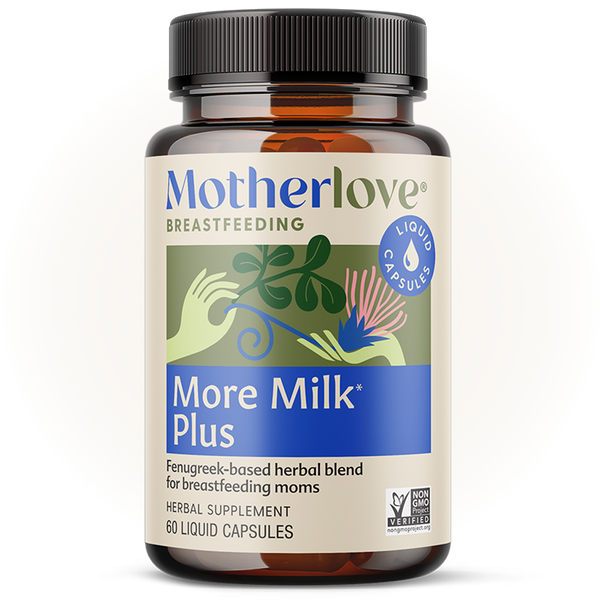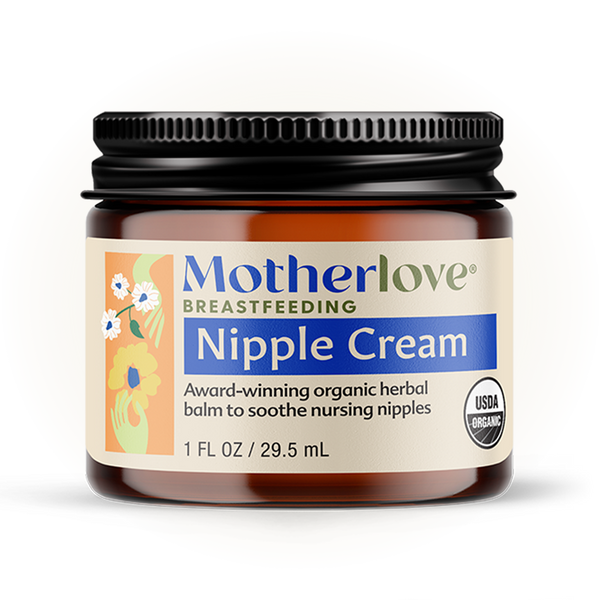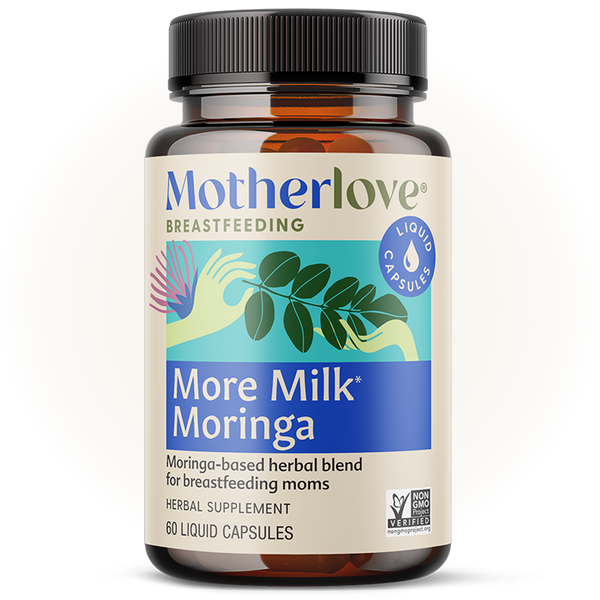Written by: Wendy, IBCLC
There is nothing quite as distressing as caring for a baby who is sick. Cold and flu season can bring more illnesses than we’d like to our babies. This cold and flu season has been particularly intense, with many viruses circulating widely at once, including flu, colds, COVID, and tummy bugs.
If you are breastfeeding, you can feel assured by the fact that breast milk is protective against your baby getting severely ill, but that doesn’t mean they won’t sometimes pick up a bug. If you are breastfeeding a baby who is under the weather, you may have all kinds of questions about how to proceed. Can you continue breastfeeding a baby who is sick? What to do if your baby is too fussy to nurse?
Here, we’ll tackle all the questions that breastfeeding parents might have about breastfeeding a baby who isn’t feeling well.
CAN YOU CONTINUE BREASTFEEDING?
Yes! If your baby is sick, you can and should continue breastfeeding. This is the case even if you are sick, too. Here’s why: As soon as you or your baby becomes ill with a particular pathogen, the composition of your breast milk changes, and antibodies for that particular virus can be found in your milk. Even beyond that, your breast milk has a baseline of antibodies and antiviral agents that help fight off infections throughout the entire time you and your baby are breastfeeding.
In some cases, breastfeeding reduces the risk of your baby even picking up a virus in the first place. But even if they do pick it up, breastfeeding often decreases the severity of their illness. In particular, breastfeeding is known to reduce the risk of gastrointestinal infections (vomiting and diarrhea), respiratory infections, and ear infections.
In a nutshell? If your baby is sick, definitely keep nursing them!
HOW TO DEAL WITH BREASTFEEDING CHALLENGES WHEN YOUR BABY IS SICK
Okay, so you know the goal is to get as much breast milk into your ill baby as possible, but sometimes illness can make breastfeeding really challenging. Babies may have trouble latching, they may be super lethargic, and they may be more fussy than usual.
Here are some tips for making breastfeeding work when your baby is sick.
TIPS FOR BREASTFEEDING BABIES WHO HAVE COLDS
When your baby is congested, nursing can be really hard. That’s because a stuffy nose can make it hard to breathe well. Your little one may latch for a little while and then come off. They may act frustrated and fussy. Some even reject the breast for a while.
Thankfully, there are things you can do to navigate this tough period:
- Suction your baby’s nostrils with a bulb syringe to clear out the mucus before nursing
- Ask your pediatrician about using a nasal spray to reduce mucus
- Run a humidifier in your home or take your baby into a steamy bathroom before nursing
- Nurse your baby in a more upright position so that the mucus travels downward
- Let your baby take shorter, more frequent breastfeeds if that’s what they can handle best
TIPS FOR BREASTFEEDING BABIES WHO ARE VOMITING
Having a baby with a tummy bug is no fun at all. But nursing your baby is one the best things you can do for them now, as breast milk can help reduce the seriousness of gastro bugs and help your baby recover sooner. Not only that, but breast milk is often one of the few fluids that babies can keep down.
If it’s hard for your baby to nurse during a tummy bug, you can offer them shorter breastfeeds, or pump your milk and feed it to them with a spoon. It’s very important that you rehydrate your baby during times of vomiting. If you notice any signs of dehydration, such as fewer wet diapers, or extreme exhaustion, please contact your pediatrician right away.
TIPS FOR BREASTFEEDING BABIES WHO HAVE FEVERS
Babies who have fevers can be more difficult to nurse because of how fussy and tired they can be. It can be helpful to go back to the basics here. Do more skin to skin with a feverish baby, breastfeeding them as they are sleeping, and in short, frequent spurts. If your baby is overheated, you can place a moist towel on their head.
You can also speak to your pediatrician about baby-friendly fever reducers that might be appropriate for your baby. Your pediatrician will give you proper dosing instructions as well.
Most of the time, fevers in babies are not a problem, and you can continue breastfeeding them as a way to soothe their discomfort and help them heal faster. However, any type of fever in a baby under three months requires a call to your pediatrician.
THE BOTTOM LINE
Breastfeeding a sick baby can be super challenging, but the good news is that breastfeeding isn’t just amazing medicine for your baby, but it can be incredibly comforting and soothing. Many parents say that nursing is one of the only things that their baby wants to do when they aren’t feeling well. If this is the case, just go with it. Pare down your life for a few days, snuggle up to your baby, and nurse them back to health (literally!).
Of course, sometimes breastfeeding and cuddling isn’t all that’s needed when a baby is sick. Stay in touch with your pediatrician, and don’t hesitate to bring your baby in if they have a high fever (or any fever if they are under three months), are extremely lethargic, are dehydrated, or can’t breastfeed at all.
Most importantly, remember that as hard as caring for and breastfeeding a sick baby is, this too shall pass. Your baby will bounce back to their healthy, happy self before you know it.
Citations:
American Academy of Pediatrics. Caring for your child's cold or flu.
Bartick M, Hernandez-Aguilar MT, Wight N, et al. ABM Clinical Protocol #35: Supporting Breastfeeding During Maternal or Child Hospitalization. Breastfeeding Medicine. 2021;16(9). doi:10.1089/bfm.2021.29190.mba
Centers for Disease Control and Prevention. Breastfeeding.
McCarthy C. Breastfeeding Benefits Your Baby’s Immune System. American Academy of Pediatrics.







